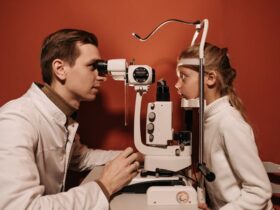Preparing for a pulmonary function test can be confusing when you don’t know what to expect. It is good to learn about the test to know what to expect and how to prepare when the time comes. Learn more about pulmonary function tests and why it is necessary.
What is a pulmonary function test?
A pulmonary function test, abbreviated as PFT, is a test that evaluates how your lungs are functioning by measuring how well they move air in and out. In most cases, your doctor will recommend a pulmonary function test if you have a respiratory health problem such as asthma, breathing difficulties, or a chronic lung condition.
You may be required to take a spirometry test or an oscillometry test. According to experts at thorasys, an oscillometry test can detect airway obstriction earlier than a spirometry test. These tests measure your lungs’ capacity, volume, gas exchange, rates of flow, and other properties depending on the test you undergo.
A pulmonary function test helps your doctor learn about the condition of your lungs and their function. Since the doctor needs to gather plenty of information first through tests, they use the test results to interpret your condition based on your medical history and current health condition. With all the aspects of your pulmonary function test in mind, it becomes easier for the doctor to learn about your respiratory health and the progression of any lung condition. That helps them get a better idea of the best treatment that will work for you.
What to expect during a pulmonary function test?
Some of the tests you may take during a pulmonary function examination include:
- A spirometry test- measures the amount of air your can inhale and exhale and how quickly you do it. During the test, you are supposed to breathe through the mouthpiece as the doctor instructs as the device measures and records your results. The test may also be necessary to determine how well a specific medication works for you or how well it aids your lung function.
- Diffusion capacity- this tests your lung to determine how the alveoli and pulmonary capillary blood transfer gases between them.
- Plethysmography- this tests your total lung capacity. It occurs in an airtight booth where you sit and breathe into a device.
- An arterial blood gas test- this one measures the amount of oxygen and carbon dioxide in your blood to determine how well your lungs are functioning.
How to prepare for a pulmonary function test
- Avoid
- caffeine before the test.
- Avoid smoking for some hours before the test.
- Relax as much as you can.
- Do not engage in strenuous activity several hours before the test.
- Wear comfortable clothing when going for the test.
- Inform the doctor of all the medications you are taking.
- Stop taking specific medications before the test as directed by the doctor.
- Avoid using your bronchodilator before the test.
- Follow all the directions instructed by your doctor.
conclusion
A pulmonary function test helps the doctor assess how well your lungs are functioning to diagnose breathing or respiratory conditions.











